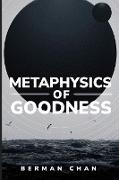- Start
- Hybrid Warriors
Hybrid Warriors
Angebote / Angebote:
What is it for something to be good? Aristotelian theory contends that to be good is to be good as a member of one's kind, and so there are varying standards of goodness depending on whether something is a squirrel, human, or whatever kind. Appearing in several contemporary versions, 1 the theory has the advantage of easily explaining, for instance, why having deep, broad roots is a measure of excellence for the oak tree but not for the squirrel, which has a different standard of goodness. Michael Thompson's and Philippa Foot's version of the Aristotelian account offers to give content to the kind-based standards, using the very conception of the kind of lifeform that an individual organism bears. It is perhaps a little noticed feature of Foot's project, in particular, that it aims to provide more than just a kind-relative account, but seeks an exhaustive account of something's goodness. She concludes, in effect, that something's goodness admits of only the kind-based sort. What follows, with respect to being a good individual, is that a good individual just is good of a kind (is a good oak, good squirrel, etc.) Accordingly, an individual's goodness obtains solely in virtue of its satisfying kind-based standards. However, her account faces an important challenge-there are at least some metaphysically possible things that can satisfy their kind-relative standards, but we plausibly judge them to be bad when they do. Thus, a thing's goodness does not appear to obtain solely in virtue of meeting kind-based standards, and so a thing's goodness is not captured merely by Foot's account. In this sense, such possible things are counterexamples to Foot's neo-Aristotelian account. The focus of my discussion will be Foot's account and any Aristotelian theory similar to hers where kind-relative standards implicitly offer an exhaustive account of something's goodness. As I later explain, I suspect that many neoAristotelian theories would be similar to Foot's in this respect, otherwise they would leave the door open also to a sort of co-existent, kind-independent account of a thing's goodness. So, although there may be Aristotelian theories not similar to Foot's in this regard, I will henceforth use 'the Aristotelian account' to refer to all Aristotelian theories offering an exhaustive account of goodness, and will take Foot's account as an important representative.
Fremdlagertitel. Lieferzeit unbestimmt
